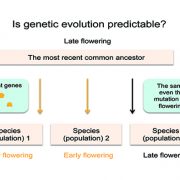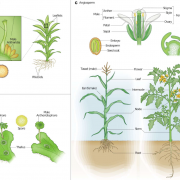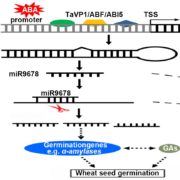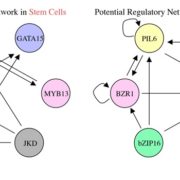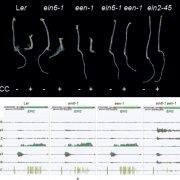Light regulates plant alternative splicing through the control of transcriptional elongation (Mol Plant)
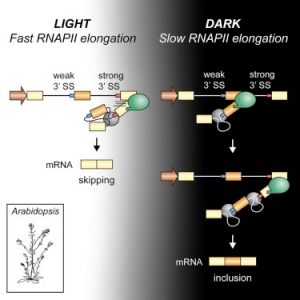 Light perception in plants generates a plethora of gene expression changes. Among them, it has been shown that light affects alternative splicing mediated by a chloroplast retrograde signal. Here, Godoy Herz et al. explore the different possible mechanisms possible involved in this regulation. Using either pharmacological inhibitors or an Arabidopsis mutant in histone deacetylation, they found similar splicing patterns to those observed in light, but this epigenetic mark does not explain the mechanism involved. Next, mutations or drugs affecting RNA pol II elongation eliminate or reduce the effect of light on splicing, respectively. Using different techniques, the authors also show that RNA pol II elongation is affected in dark conditions. These findings are in accordance with the Kinetic Model of coupling between transcription and alternative splicing first described in mammalian cells. This work shows how this mechanism is important for environmental responses in biologically relevant conditions. However, it is still necessary to know the basis for the connection between the chloroplast retrograde signal and transcript elongation. (Summary by Facundo Romani) Mol. Plant 10.1016/j.molcel.2018.12.005
Light perception in plants generates a plethora of gene expression changes. Among them, it has been shown that light affects alternative splicing mediated by a chloroplast retrograde signal. Here, Godoy Herz et al. explore the different possible mechanisms possible involved in this regulation. Using either pharmacological inhibitors or an Arabidopsis mutant in histone deacetylation, they found similar splicing patterns to those observed in light, but this epigenetic mark does not explain the mechanism involved. Next, mutations or drugs affecting RNA pol II elongation eliminate or reduce the effect of light on splicing, respectively. Using different techniques, the authors also show that RNA pol II elongation is affected in dark conditions. These findings are in accordance with the Kinetic Model of coupling between transcription and alternative splicing first described in mammalian cells. This work shows how this mechanism is important for environmental responses in biologically relevant conditions. However, it is still necessary to know the basis for the connection between the chloroplast retrograde signal and transcript elongation. (Summary by Facundo Romani) Mol. Plant 10.1016/j.molcel.2018.12.005


